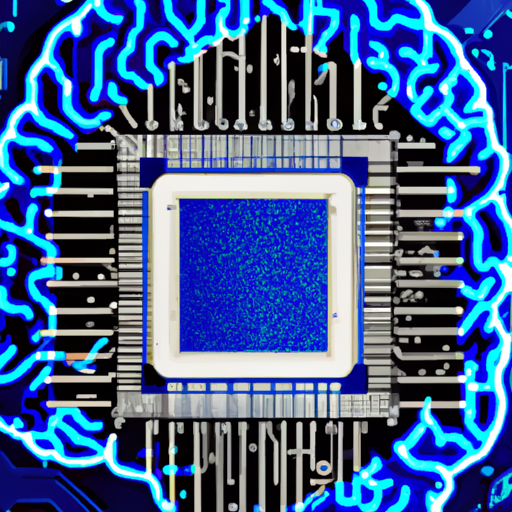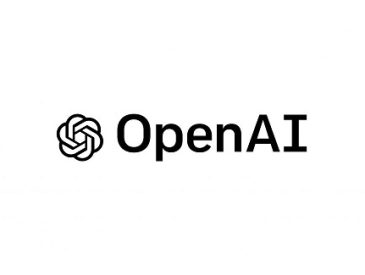Zuckerberg’s Pledge: Building Insanely Powerful AI
In the realm of technological advancement, few figures wield as much influence as Mark Zuckerberg, the CEO of Meta. Recently, Zuckerberg made a pledge that has sent shockwaves through the tech industry and beyond: to develop an AI system of unprecedented power, potentially surpassing human intelligence.
While this ambitious commitment is driven by the belief that it may be the key to shaping the future of tech services, it has sparked concerns and debates about the potential dangers of unleashing such advanced AI systems.
The implications of open-sourcing insanely powerful AI are far-reaching, raising questions about the need for regulation and control.
Key Takeaways
- Mark Zuckerberg has pledged to build an artificial general intelligence (AGI) system on par with human intelligence.
- There are concerns about open-sourcing AGI, with experts and politicians fearing that it could pose a threat to humanity if not properly regulated.
- Dame Wendy Hall emphasizes the importance of regulating powerful AI systems before considering open-sourcing AGI.
- The decision to open-source AGI could have significant consequences, both positive and catastrophic, and requires international consensus.
Mark Zuckerberg’s AI Commitment
Mark Zuckerberg and Meta are setting their sights on a new horizon: the development of artificial general intelligence (AGI), joining the ranks of tech companies like OpenAI and Google who are already in pursuit of this ambitious goal. Zuckerberg, the driving force behind Meta, is steering the company’s considerable AI research division towards this objective, without committing to a specific timeline or providing a definitive explanation of AGI’s characteristics.
This strategic move involves reorganizing Meta’s esteemed AI research group, FAIR, aligning it closely with the teams dedicated to crafting generative AI applications across Meta’s widespread platforms. The intent behind this restructuring is clear: to expedite the transition of pioneering AI advancements into practical features accessible to the global user base of Meta’s services.
In a candid conversation, Zuckerberg revealed his perspective on the importance of general intelligence in the future of product development at Meta. “We’ve arrived at the understanding that building the kind of products we envision requires a foundation of general intelligence,” Zuckerberg shared. He emphasized the significance of this shift, noting that it serves as a powerful draw for top-tier researchers who are naturally inclined to tackle the field’s most challenging and profound problems.
The vision is not just about creating cutting-edge technology but also about fostering an environment where groundbreaking research can translate into real-world benefits for billions of individuals who interact with Meta’s platforms.
Mark Zuckerberg’s unwavering dedication to advancing artificial intelligence (AI) is evident in his commitment to building a powerful AI system on par with human intelligence. He has pledged to develop an artificial general intelligence (AGI) system that can carry out tasks at a level of intelligence that matches or exceeds humans. In addition, Zuckerberg has expressed the possibility of making this system freely available to the public.
In the highly competitive landscape of artificial intelligence, the hunt for exceptional AI talent has reached unprecedented levels. Firms across the industry are vying for a limited selection of skilled researchers and engineers, who are in such demand that they can negotiate staggering salaries, with some packages exceeding $1 million annually. Leaders like Zuckerberg are deeply involved in this contest, personally stepping in to persuade top prospects to join their team or to prevent their existing talent from being poached by rivals.
Reactions
However, concerns have been raised about the potential risks and lack of regulation in open-sourcing AGI. Experts, including Dame Wendy Hall, emphasize the need for proper regulation before releasing such powerful AI systems. They argue that international consensus and government vetting are necessary to ensure public safety.
While progress has been made in AI development, the specific timeframe for achieving AGI remains uncertain. Nevertheless, companies like Meta, OpenAI, and Google DeepMind are actively working on AGI development.
Building Artificial General Intelligence (AGI)
The pursuit of Artificial General Intelligence (AGI) has become a significant focus in the field of technology and has raised concerns about its potential risks and lack of regulation.
AGI refers to an AI system that can perform tasks at a level of intelligence on par with or surpassing human capabilities. Mark Zuckerberg’s company, Meta, aims to develop an AGI system and has expressed the possibility of making it freely available to the public.
However, experts and politicians are alarmed by the potential emergence of AGI, fearing that it could evade human control and pose a threat to humanity.
There is a growing consensus among experts that the development and deployment of powerful AI systems like AGI should be subject to robust regulation to ensure public safety.
Concerns About Open Source AGI
Open sourcing AGI has raised significant concerns among experts and policymakers regarding its potential risks and the need for proper regulation. The idea of making AGI freely available to the public has alarmed many, as they fear that AGI systems could evade human control and pose a threat to humanity.
Dame Wendy Hall, a professor of computer science, has expressed concerns about open-source AGI, stating that it is irresponsible to release such technology without proper regulation. She emphasizes the need for urgent progress in regulating AI to ensure public safety.
Some experts argue that decisions regarding AGI should be made through international consensus, highlighting the importance of involving governments and regulatory bodies. The decision to open-source AGI could have both world-saving and catastrophic consequences, further underscoring the need for careful regulation in this field.
The Importance of Regulating Powerful AI Systems
With growing concerns about the potential risks and lack of regulation surrounding open-source AGI, the discussion now shifts to the crucial importance of effectively regulating powerful AI systems.
Dame Wendy Hall, a professor of computer science, emphasizes the need for regulation before open-sourcing AGI, stating that public safety requires urgent progress in regulating AI. Meta, along with other tech firms, has committed to allowing governments to vet AI tools. Additionally, an expert suggests that decisions regarding AGI should be made through international consensus.
OpenAI’s CEO, Sam Altman, also acknowledges the importance of regulation in AI advancements. Criticism of open-sourcing AGI highlights the potential catastrophic consequences of releasing such technology without proper regulation. Therefore, it is imperative to establish robust regulatory frameworks to ensure the safe and responsible development and deployment of powerful AI systems.
Meta’s Role in AI Regulation
As the prominent player in AI development, Meta is positioned to play a crucial role in the regulation of powerful AI systems. With its commitment to building an artificial general intelligence (AGI) system, Meta’s actions and decisions will have a significant impact on the development and deployment of AI technology.
The company’s consideration of open-sourcing its AGI system raises concerns about the potential risks associated with unregulated access to such powerful technology. Experts, including Dame Wendy Hall, emphasize the need for proper regulation before releasing AGI to the public.
Meta, along with other tech firms, has expressed a willingness to collaborate with governments in vetting AI tools. Given its influence and resources, Meta’s approach to AI regulation will shape the future landscape of AI development and its impact on society.
Criticism of Open-Sourcing AGI
Meta’s consideration of making its AGI system open source has sparked intense criticism and raised concerns about the potential risks associated with unregulated access to such powerful technology.
Experts and politicians have expressed alarm over the idea, fearing that AGI systems could evade human control and pose a threat to humanity. Dame Wendy Hall, a professor of computer science, has voiced her concerns, stating that it is irresponsible to release such technology without proper regulation.
Critics argue that open-sourcing AGI could have world-saving or catastrophic consequences and that decisions regarding AGI should not be left solely to tech companies. It is believed that international consensus is necessary for making responsible decisions about AGI.
In light of these concerns, the importance of regulating powerful AI systems before open-sourcing them has been emphasized by various experts.
The Complex Debate on Open-Sourcing AGI
The debate surrounding the open-sourcing of artificial general intelligence (AGI) is a complex and contentious one, sparking discussions about the potential risks and benefits involved in making such powerful technology freely accessible.
On one hand, proponents argue that open-sourcing AGI can lead to accelerated innovation, collaboration, and democratization of this transformative technology. They believe that by allowing the public access to AGI, it can be harnessed for the greater good and solve pressing global challenges.
On the other hand, critics express concerns about the lack of control and potential misuse of AGI. They argue that without proper regulation and safeguards, open-sourcing AGI could pose significant risks to humanity, including security threats and the potential for autonomous systems to evade human control.
Striking a balance between openness and responsible development is crucial in navigating this complex debate.
The Potential Consequences of Open-Sourcing AGI
The ongoing debate surrounding the open-sourcing of AGI has raised concerns about the potential consequences that may arise from making such a powerful technology freely accessible.
Experts and politicians are alarmed by the possibility of AGI systems evading human control and posing a threat to humanity. Dame Wendy Hall, a professor of computer science, believes that releasing AGI technology without proper regulation is irresponsible. She emphasizes the need for urgent progress in regulating AI to ensure public safety.
It is argued that decisions regarding AGI should be made through international consensus, and not solely by tech companies. The decision to open-source AGI could have world-saving or catastrophic consequences, highlighting the importance of carefully considering the potential risks before making such technology freely available.
Progress in AGI Development
Significant strides have been made in the development of artificial general intelligence (AGI). Companies like Meta, OpenAI, and Google DeepMind have been actively working on AGI development.
Meta, in particular, has made progress by building a significant amount of infrastructure for creating new AI systems. They have also ordered a substantial stockpile of AI processing chips, indicating their commitment to advancing AGI technology. As well, Meta is currently working on a sequel to their Llama 2 AI model, furthering their efforts in AGI development.
These advancements, coupled with the work being done by other tech firms, highlight the growing momentum in the field of AGI. While specific timelines for the development of AGI systems have not been provided, the progress being made suggests that the realization of advanced AI capabilities is becoming increasingly feasible.
Other Companies in the Race for AGI
While Meta has been making notable progress in AGI development, it is not the only company in the race to achieve artificial general intelligence. Other major players in this pursuit include OpenAI and Google DeepMind.
OpenAI, co-founded by Elon Musk and Sam Altman, aims to ensure that AGI benefits all of humanity and has made significant strides in AGI research. Google DeepMind, acquired by Google in 2014, is dedicated to developing safe and beneficial AGI.
These companies, alongside Meta, are pushing the boundaries of AI technology and investing heavily in research and infrastructure. The competition among these companies reflects the growing recognition of AGI’s potential and the urgency to be at the forefront of its development. As the race intensifies, it will be interesting to see who emerges as the frontrunner in achieving AGI.
Frequently Asked Questions
What Specific Tasks or Capabilities Does Mark Zuckerberg Envision an AGI System Being Able to Perform?
Mark Zuckerberg envisions an AGI system to perform tasks at a level of intelligence surpassing humans. While specific capabilities are not mentioned, the focus is on building full general intelligence to revolutionize tech services and potentially make it freely available to the public.
How Do Experts and Politicians Propose Regulating AGI Systems to Ensure Public Safety?
Experts and politicians propose regulating AGI systems to ensure public safety through urgent progress in AI regulation, government vetting of AI tools, decision-making through international consensus, and responsible release of technology with proper regulation and oversight.
What Are Some Potential Benefits and Risks Associated With Open-Sourcing AGI?
Some potential benefits of open-sourcing AGI include increased collaboration and innovation. However, risks include the potential for misuse or unintended consequences. International consensus and proper regulation are essential to mitigate these risks and ensure responsible development and deployment of AGI.
How Does Meta Plan to Contribute to the Regulation of AI Systems?
Meta plans to contribute to the regulation of AI systems by allowing governments to vet AI tools. They recognize the need for public safety and support urgent progress in regulating AI. International consensus is seen as crucial in making decisions about AI.
Are There Any Specific Concerns or Criticisms Raised About the Decision to Open-Source AGI?
Specific concerns and criticisms have been raised about the decision to open-source AGI. These include fears of AGI systems evading human control, posing threats to humanity, and the need for proper regulation before releasing such technology.
Get ready to dive into a world of AI news, reviews, and tips at Wicked Sciences! If you’ve been searching the internet for the latest insights on artificial intelligence, look no further. We understand that staying up to date with the ever-evolving field of AI can be a challenge, but Wicked Science is here to make it easier. Our website is packed with captivating articles and informative content that will keep you informed about the latest trends, breakthroughs, and applications in the world of AI. Whether you’re a seasoned AI enthusiast or just starting your journey, Wicked Science is your go-to destination for all things AI. Discover more by visiting our website today and unlock a world of fascinating AI knowledge.





